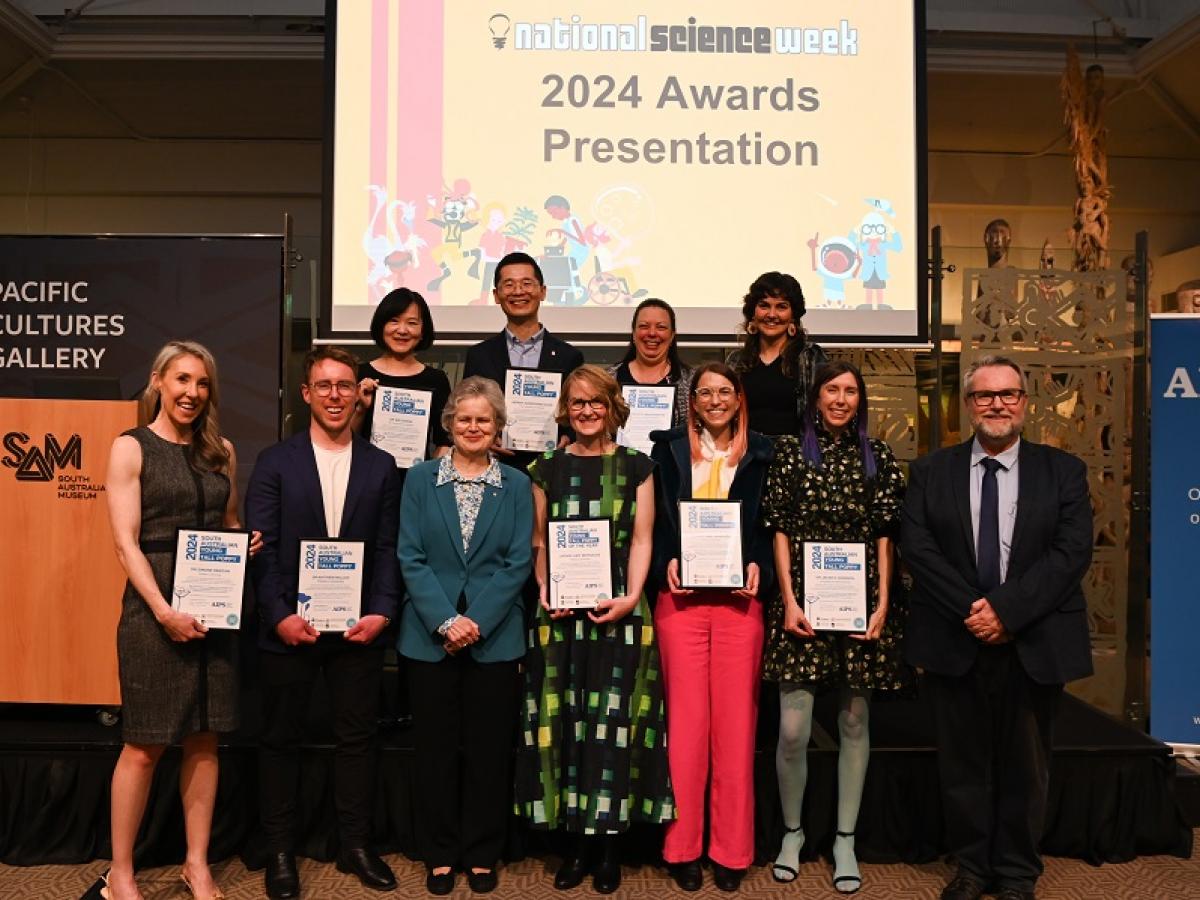
2024 Young Tall Poppy recipients including Dr Wei Zhang, School of Computer and Mathematical Sciences (back left), and Associate Professor Xiaoguang Duan, School of Chemical Engineering (back second left). Photo: Cath Leo
Two University of Adelaide researchers are recipients of 2024 South Australian Young Tall Poppy Science Awards.
Dr Wei Zhang, School of Computer and Mathematical Sciences, and Associate Professor Xiaoguang Duan, School of Chemical Engineering, were recognised for their scientific achievements.
“Our two Young Tall Poppies are leading the way in their respective research fields, and join the ranks of fellow University of Adelaide staff who have been recognised for their growing expertise,” said University of Adelaide’s Deputy Vice-Chancellor (Research) Professor Anton Middelberg.
“The University of Adelaide is proud of its community of experts, who deliver research here in South Australia which is highly valued and has a direct impact on society – locally, nationally and overseas.”
Dr Wei Zhang and her team are collaborating with greenhouse mushroom growers to use technology to reduce the waste and save energy.
“Mushrooms are a tasty, rich in fibre and protein, and low in calories, but up to 30 per cent of a crop is wasted during cultivation, harvesting and transportation in our collaborated mushroom farm,” said Dr Zhang.
“This not only impacts farmers economically but also complicates the delivery of fresh mushrooms to remote areas.
“We are working with growers to use technologies like sensors, data analytics, the internet of things, and artificial intelligence to keep an eye on everything from the environment in the greenhouse to how each mushroom grows.
“Their system alerts them when it is time to harvest, greatly enhancing efficiency. It also optimises water and energy use, saving precious resources.”
Associate Professor Xiaoguang Duan is exploring sustainable solutions to mitigate the environmental contamination caused by antibiotics and other micropollutants in the post pandemic era.
“My team is focusing on creating a diversity of functional nanomaterials which can efficiently remove antibiotics and microplastics from water,” he said.
“Utilising green catalytic technologies, we have developed engineered nanocarbons such as graphene, single atom catalysts, and nanodiamonds that are both cost-effective and highly effective in breaking down persistent micropollutants in water into harmless byproducts.”
“These materials drive the sustainable generation of reactive oxygen species through an advanced oxidation process which can rapidly attack and degrade organic pollutants such as antibiotics, drugs, pathogens, and microplastics without leaving secondary contaminants.
“We are also exploring the integration of these nanomaterials into upscaled devices and wastewater treatment plants, making it easier to implement these cutting-edge solutions in real-world scenarios.”







